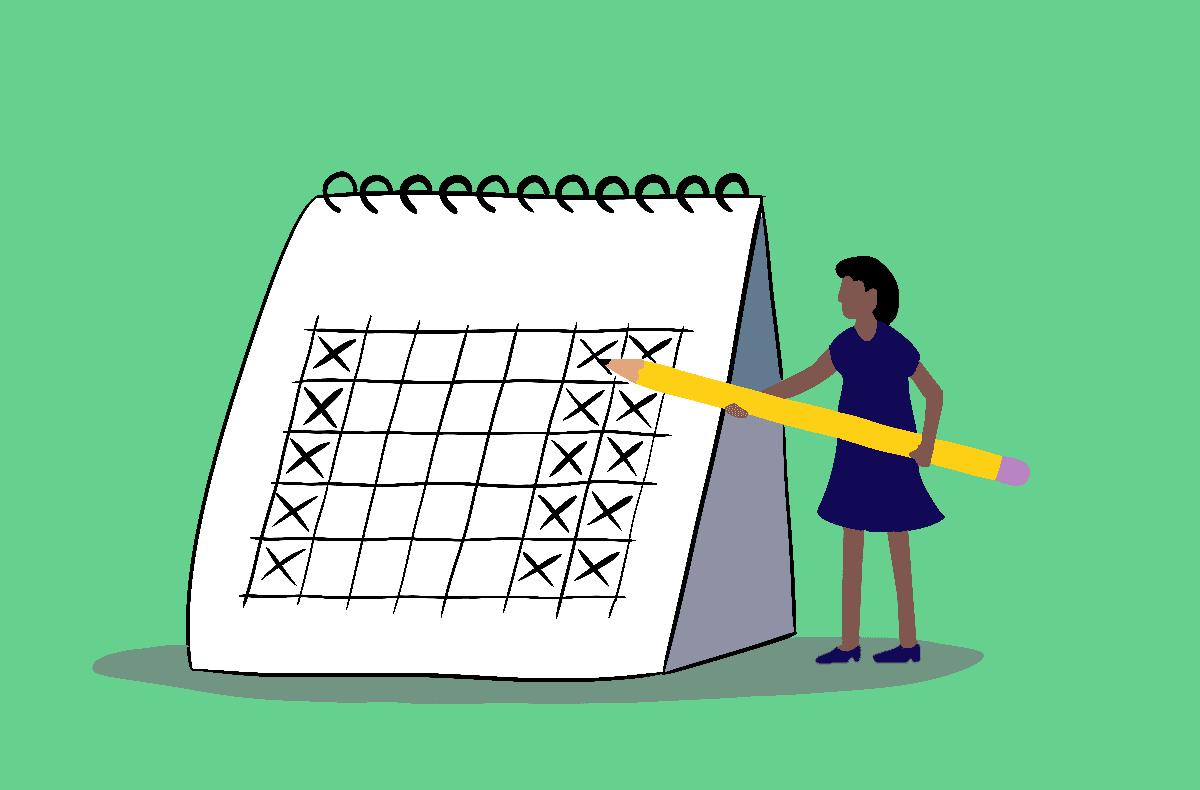
If you’ve ever used TikTok, you’ll know just how easy it is to get caught in a scrolling loop. It’s like falling down a rabbit hole that you can’t get out of—but why would you ever want to? With its personalised feed, almost every video you see is tailored to your exact topic preferences. Sounds like a dream come true. So what’s the problem?
TikTok’s (previously named music.ly) algorithm paved the way for a move away from the traditional chronological feed order, creating the “for you” page (often abbreviated as fyp). According to a report by the New York Times, internal documents were released that detail exactly how TikTok constructs its addictive algorithm.
If you’ve ever seen the documentary The Social Dilemma you too will probably have been shocked by how social media applications track the exact time you spend on each post or video, using it as data to show you exactly the type of content that will entice you further into the depths of Facebook, Instagram, etc. TikTok uses this same formula and shows you the videos that should keep you on the app for as long as possible.
It still seems, though, that we are drawn into TikTok’s content so much more than Instagram or Facebook.
Why TikTok is different
The brevity of the videos means we are constantly switching topic, never letting our brains linger for more than the desired time, and therefore never feeling the twitching pangs of boredom that make us consider closing the app and opening something else. The hashtag #7seconds on TikTok currently has 426.9 million views—creators have discovered this hack and now align their content to what the algorithm will push towards us more.
These videos that feel like they pass in the blink of an eye give us the impression that we are always unfinished with our experience, so we carry on, not realising that we do so because we want to feel some type of achievement for having finished watching a 10 minute+ video.
These super-short clips are like heroin for our dopamine levels. According to an article from Forbes, TikTok’s algorithm keeps our dopamine levels at a concerning high. Every new video that pops up on your ‘for you’ page is a new dopamine hit, and you eventually crave more and more of this.
We get ourselves caught in a trap of endless, mindless scrolling where your body craves a new video to get a new shot of happiness (a.k.a dopamine). We then find ourselves in a reward-based loop; a new video? A new dopamine rush. And the cycle continues, which is why 16% of teens say they use the app almost constantly.
TikTok as an alternative to real world effort
When I first read about how TikTok was a dopamine factory, a worrying thought struck me: if we become accustomed to this particular style of dopamine release, what does that mean for our experiences in the real world? How will this affect us going forward when we seek dopamine from other sources (exercise, food, etc.)?
This rewarding release of dopamine can become very addictive—when you stop watching TikToks and your dopamine levels drop, you feel the need to return to the level you felt before. Your body craves the micro-video-induced rush of reward, and you open the app back up again. No wonder 90% of TikTok users access the app daily.
There have also been claims that TikTok reduces your attention span. Becoming accustomed to short, snappy videos causes a lack of patience and trouble with focusing on anything longer than the average TikTok. Collectively, Gen Z is running at warp-speed. This becomes clear with the recent trend of using sped-up songs as background audio for TikTok videos.
These faster songs have soared in popularity, with many complaining that original versions now sound too slow for them—we are now used to doing life on the speedy setting, assuming we are bored if we aren’t constantly stimulated at the appropriate speed.
The consequences of immediate gratification
We have to also ask ourselves how this is affecting our perception of reward. Having an almost endless number of TikToks, and therefore dopamine-induced feelings of reward, at our fingertips means we have unlimited access to unearned satisfaction—did we really do anything to acquire the happiness we felt from that amusing video, or did we just tap the screen and turn the volume up?
Perseverance, dedication, resilience… these life skills are being lost in our aimless scrolling which supplements our happiness, without us ever really doing anything. One can only imagine all sorts of negative consequences this could have for us as people: in the workplace, in our relationships, in our exercise routines—the list goes on.
I think the most prevalent consequence here is how our source of happiness will change. Let’s face it, if we have access to artificially-made sources of endless dopamine, and all you need to do is scroll to get a new hit each time, there is no way to replicate that authentically in reality.
For example, if you get a dopamine rush from eating a donut, you’re going to feel a significantly lower amount of the chemical than if you spent an hour on TikTok. You only eat 3 meals a day—the average person watches 95 minutes of TikTok videos daily, and has access to millions more, without the calories.
I fear that this unnatural, highly-sustained level of dopamine will ruin how we appreciate the smaller things in life, those little moments that maybe can’t compete with hours and hours of TikTok videos, but are nonetheless worth experiencing.
So what do we do? Delete TikTok? Possibly. Seriously consider how we are achieving our happy-hormone hits and ensure we work hard and feel genuinely accomplished for each and every one? Easier said than done.
It’s not about being perfect, it’s about being aware. While TikTok has a number of advantages, I urge you to consider whether you really want to scroll to that next video, or if you are soldiering on in hopes of that magic pot of gold at the end of the rainbow, the video that will finally end your scrolling streak—because, in reality, it doesn’t exist.


